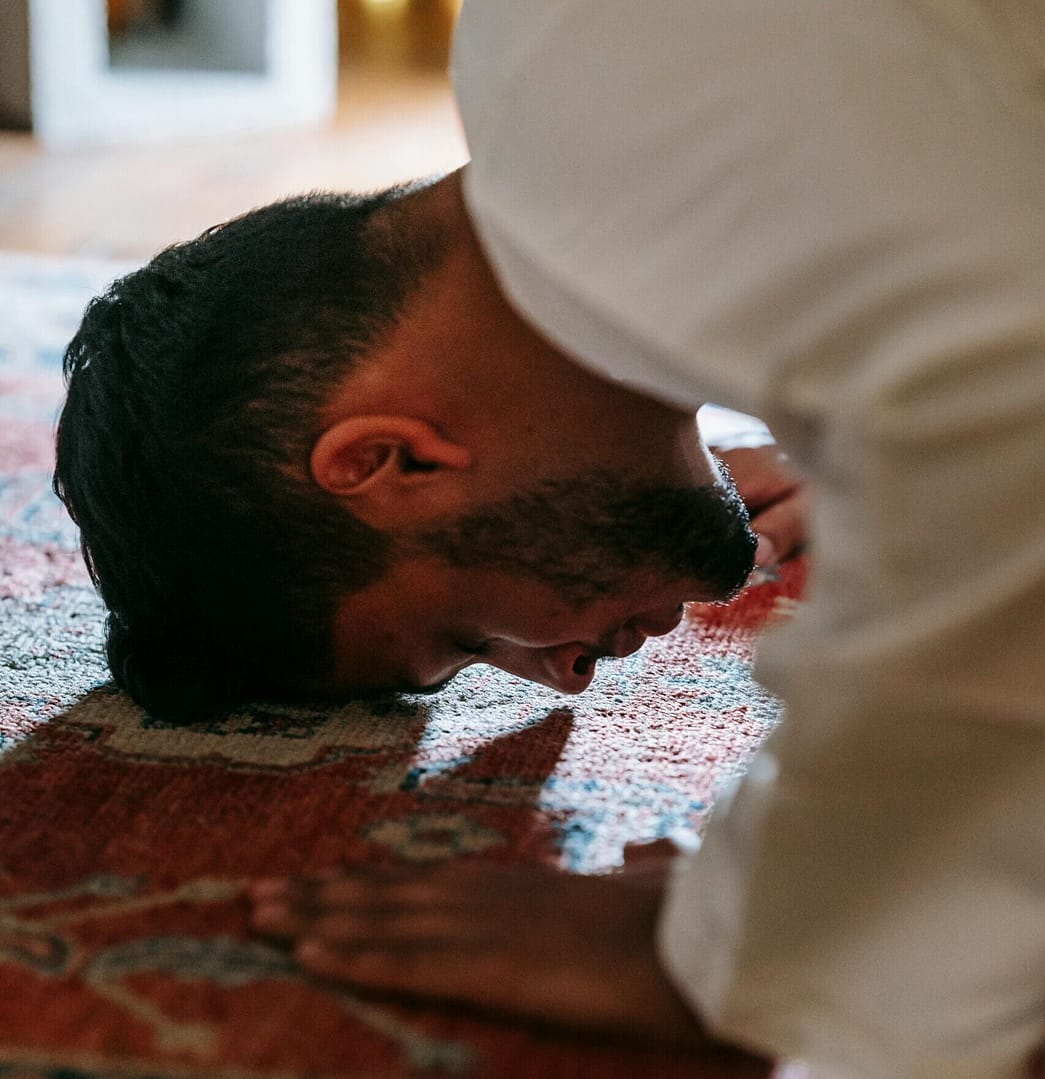Introduction: The Importance of Prayer in Islam
Prayer, known as Salah in Arabic, is one of the Five Pillars of Islam and a fundamental act of worship for Muslims. For those who wish to deepen their connection with Allah, it is essential to learn to pray correctly. It serves as a direct link between the worshipper and Allah (God) and is performed five times a day. This guide will walk you through the steps, ensuring that your Salah is performed with understanding and precision.
What is Islamic Prayer?
Islamic prayer, or Salah, is a set of physical and verbal acts performed by Muslims. It involves standing, bowing, prostrating, and sitting while reciting specific verses and phrases from the Quran. The purpose of Salah is to humble oneself before Allah, seek His guidance, and express gratitude.
Why is Prayer Important in Islam?
Prayer is crucial in Islam as it:
- Strengthens the connection with Allah: Through regular prayer, Muslims maintain a constant relationship with their Creator.
- Fulfills a religious obligation: As one of the Five Pillars, performing Salah is mandatory for every adult Muslim.
- Purifies the soul: Prayer helps cleanse the heart from sins and keeps one mindful of their actions throughout the day.
How to Perform Islamic Prayer: Step-by-Step Guide
1. Perform Wudu (Ablution):
- Wudu is the ritual washing before prayer. It includes washing the hands, mouth, nose, face, arms, wiping the head, and washing the feet.
- This act purifies the body and prepares the mind for the sacred act of prayer.

2. Intention (Niyyah):
- Before starting the prayer, make a sincere intention in your heart to perform the specific prayer (e.g., Fajr, Dhuhr, Asr, Maghrib, Isha).
3. Standing (Qiyam):
- Begin by standing upright facing the Qibla (the direction of the Kaaba in Mecca).
- Raise your hands to your ears and say “Allahu Akbar” (God is the Greatest).

4. Recite Surah Al-Fatiha and Another Surah:
- In the standing position, recite Surah Al-Fatiha, the opening chapter of the Quran.
- Follow it with another short Surah or verses from the Quran.

5. Bowing (Ruku’):
- Bend forward, placing your hands on your knees, and say “Subhana Rabbiyal Azeem” (Glory is to my Lord, the Most Great) three times.

6. Standing Up (I’tidal):
- Return to the standing position and say “Sami’Allahu liman hamidah” (Allah hears the one who praises Him).

7. Prostration (Sujood):
- Move to the ground, placing your forehead, nose, palms, knees, and toes on the floor, and say “Subhana Rabbiyal A’la” (Glory is to my Lord, the Most High) three times.

8. Sitting Between the Two Prostrations:
- Sit up from Sujood and say “Rabbighfirli” (O my Lord, forgive me).
- Then perform the second Sujood.

9. Tashahhud (Sitting Position):
- After the final Sujood, sit and recite the Tashahhud, which includes bearing witness that there is no god but Allah and that Muhammad is His Messenger.

10. Conclusion with Tasleem:
- End the prayer by turning your head to the right and then to the left, saying “Assalamu Alaikum wa Rahmatullah” (Peace and mercy of Allah be upon you).

Common Mistakes to Avoid in Islamic Prayer
- Lack of concentration: Staying focused during Salah is crucial. Avoid distractions and be mindful of your actions and recitations.
- Incorrect recitation: Ensure that you pronounce the verses of the Quran correctly. Regular practice and listening to proficient reciters can help improve your pronunciation.
- Hasty movements: Take your time in each posture, allowing your body and mind to be fully engaged in the prayer.
Benefits of Regular Prayer
Regular prayer offers numerous spiritual, psychological, and physical benefits, including:
- Spiritual elevation: Constantly connecting with Allah helps elevate the soul and brings inner peace.
- Discipline: Praying five times a day instills a sense of discipline and order in daily life.
- Physical fitness: The movements in Salah, such as bowing and prostrating, provide a gentle exercise for the body.
Start learning how to pray in Islam
You can learn how to pray in Islam through our courses at My Deen Institute, explore our courses here and you can register for a free trial session.


